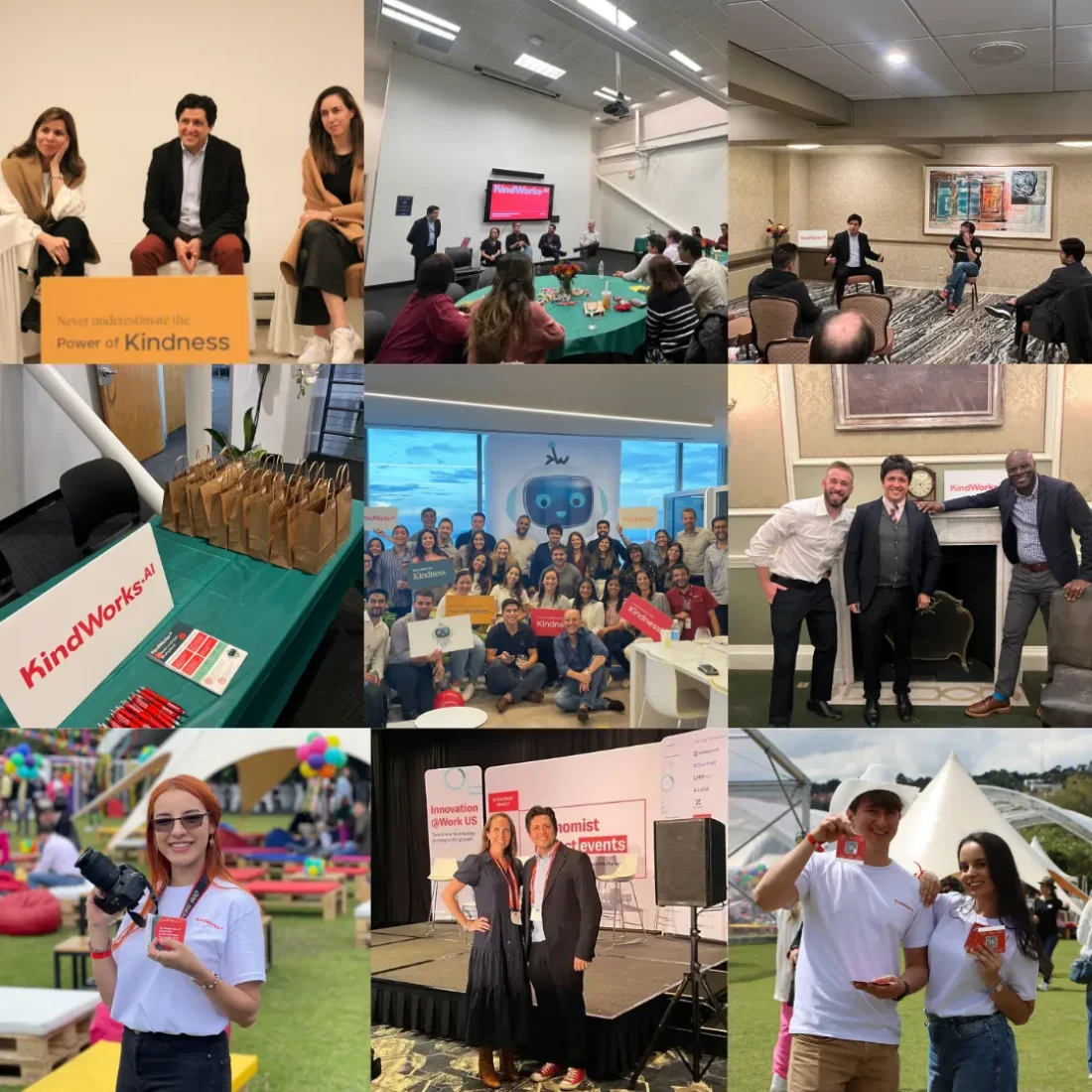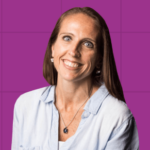As an entrepreneur, I feel that every day is an adventure and I often say that building a company is the best learning experience I’ve had throughout my entire work and educational career. The past year has been an amazing rollercoaster of successes, challenges, roadblocks, breaking seemingly impenetrable barriers, and life-changing learnings. As a company, we’ve accomplished a lot in terms of customer engagement and product development. But what I’ll remember most are how we work as a team when facing crossroads, roadblocks, hard decisions, and also the celebrations.
As I reflect on the past year, there are many highlights and learnings that I’ve narrowed into a handful to share.
Values can and must be lived in the everyday activities of a company
When I started working with KindWorks, Daniel (CEO) kept talking about values, values, values. While I agreed deeply we needed to establish company values and live them, I was more skeptical about how frequently and adamantly he spoke about them. I think I had been left with a sour taste after working in places where values were all over the walls and talked about by leadership constantly, but not lived at all in the day-to-day experiences as an employee. After being with KindWorks for nearly two years, I can say that we truly prioritize our values in every aspect of what we do.
It comes as no surprise that Kindness is one of our 8 core values. We talk often about what Kindness means. Kindness is often thought of as the same thing as ‘be nice’, but we consider Kindness as so much more than ‘being nice’. It often means having difficult, honest, and transparent conversations and doing so with empathy, compassion, and truly listening to the other person’s point of views and needs. It means connecting with colleagues on a human level and approaching work relationships with sincerity and generosity. It means practicing Kindness to yourself by practicing gratitude and recognition for your own accomplishments.
An example of living this is starting each one of our twice weekly standups with a Kind starter. It is like an ice breaker, but the questions are generally on a deeper and more varied level. With each meeting, I learn about another layer of my coworkers as humans. Despite working across 6 countries and time zones, I feel a deep connection to my colleagues at KindWorks across all of the world and across various teams. At first, I was unsure about the steadfast commitment to incorporating a Kind Starter into every standup because of the time that it takes out of the day and the potential for cheesiness. I’m now an avid believer in the difference that it makes, and the time commitment is a drop in the bucket for the great impact that it has on the dynamics of our team.
Hard work may not cure all, but it sure helps a lot
I worked with the KindWorks team for 6 months before I joined full time. In that time I saw the commitment and work ethic of the rest of the founding team and it was one of the factors in my decision to join full time. I’ve seen that unwavering commitment, dedication, drive, passion, and hard work maintained across every member of the team since day one.
Daniel, our CEO, truly imagines that anything is possible, which, I believe, is a critical trait in the leader of a startup. But, more than just the dream that he leads us on, the most important factor is his unwavering commitment and drive to make the dream happen. He does the work and makes the sacrifices every day to support and lead the team to accomplish huge wins on a regular basis.
Tim, our CTO, I often describe as a unicorn. He has built a product that makes our KindWorks dream become a reality in the hands of users across the world. I don’t read code so I don’t claim to know exactly what he is working on every day, but, what I see is that, when we discuss an idea to implement, within days he and his team have integrated feedback flawlessly into the product. He has led a rapid compliance process with huge global consulting firms at a record pace this year. His team all speak wonders about him. He is a creative problem solver and deep thinker. And he brings value on any call with a customer or investor.
Thea, our CXO, and her team are the voice of Beni, our AI agent. They have designed a user experience that has exceeded our wildest expectations in terms of impact and engagement with our first customers at a top global consulting firm. I am in awe of Thea’s ability to construct the perfect conversations, especially when English is her second language.
I am working harder and more hours than ever in my career but I am also more passionate and more driven by the mission, by our team, and by the impact with our customers than anything else previously in my career.
Prioritization is Critical
Distractions are positioned to be our worst enemy. If we chased every idea that we have, our team has, our investors have, our customers have, and our advisors have, then we would never accomplish any of them. That doesn’t mean they aren’t great ideas because most of them are. But, as an early stage startup, our time is our most valuable asset and it’s critical that we use every minute of it in the best way possible. This is, of course, true for any company of any size, but for a startup and a founding team who does not have extra resources to lean on, this will make or break the company.
Someone asked me recently, ‘What do you do all day?’ It’s a great question and I could answer it with the standard ‘no day is the same’ or ‘it changes every day’. The real answer is everything (except, of course, writing code). As a small team that is mostly focused on product development, running the business falls to Daniel (CEO), me, and a wonderful recent hire, Marcela. Throughout most of my career I have leaned on internal partners and agencies to help make my work look its best. Now, I don’t have those accomplices to rely on and it’s just me. This is why prioritization is all the more important. When I’m splitting my time managing between business development meetings with large enterprise customers, actings as the customer success representative for our current customers, coordinating and running meetings with investors, designing merchandise and social media, navigating Canadian immigration processes, managing our finances, updating our sales and pitch decks, managing and updating our website, liaising with our legal partners, and everything else on my daily plate, time is of the absolute importance.
This is why the way that we manage decisions at KindWorks as a team is a process that I believe makes the difference for why we continue to thrive together. An advisor recently suggested calling it ‘sequencing’ instead of ‘prioritizing’. I am adopting this because most ideas are truly ones that we want to act on, but we need to sequence them in the best order to be able to actually accomplish each one. A few questions that we ask ourselves in determining how to sequence projects include: ‘Does it fit into our priorities and values?’, ‘Will this further us towards our short term / long term goals?’, ‘Where does it fall in the urgent / important matrix?’, ‘How much time and effort is needed?’. It’s important, of course, to first have clear goals, priorities, and values. Then, these questions generally allow us to make a decision quickly as a team on where we focus our time and energy and we then have a clear reason and explanation for why we make each decision.
I see us building a unique and amazing culture and company and I’m excited for the future to enable and encourage more and more individuals and companies to find the power of Kindness in their workplaces.

